#amish tripathi
Text
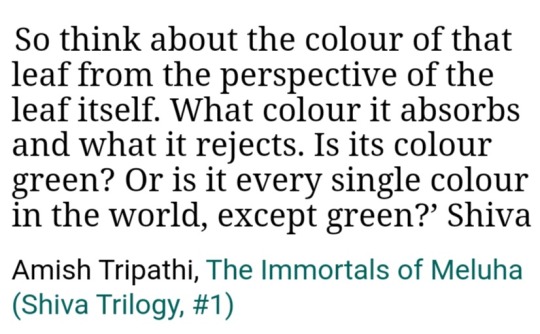
Context: They were talking about how the truth can be different based on perspective.
#book quotes#quotes#indian literature#south asian fantasy#south asian writing#asian literature#literature#the shiva trilogy#amish tripathi#the immortals of meluha#south asian literature#south asia#India#hindu mythology#fiction#fantasy fiction
26 notes
·
View notes
Text
It's 3 in the morning but I have a really important question so we all know that Amish Tripathi's books exist in the same universe we call the amishverse, so in the first book of the Shiva trilogy somebody mentions to Shiva that in meluha they have this rule book they follow and it's called"the song of God" so I'm assuming it's "Bhagvat Geeta" since it's literal translation too is "the song of God" we all know that the story of Mahabharata was narrated by ved vyas and then written by Ganesh ji. Ganesh ji also exists in Amishverse as son of Shiva and sati and the last chapter is written in his POV in the last book where he talks about a great war(which I'm assuming is Mahabharata) and maybe he will someday write about it (I'm assuming it's Amish ji telling how he intends to write about Mahabharata like how he is writing the ram Chandra series) so my question is if the Mahabharata happens after the fall of meluha then how come bhagwat Geeta exists in shiva's time?
16 notes
·
View notes
Text
"If you spend enough time with anything, you start liking it, even sadness."
Amish Tripathi, Raavan: Enemy of Aryavarta
16 notes
·
View notes
Text
This [The fantasy Map of India in Immortals of Meluha] is a fairly common addition to texts published in the fantasy fiction genre, particularly since it attempts to construct a world whole-cloth for uninitiated readers. Unlike a standard map, the visual technology behind this one is slightly different: it is not part of the colonial project that enables mastery. Instead, this is a map that is deliberately attempting to reimagine a past for the country – reconstructing the territory along fantastical lines that allow the author full freedom over the world of the text. While analysing the iconography associated with the geobody of India, Ramaswamy discusses the “enchanted cartographies” that come to define Bharat Mata. This is a slightly different project: the map is attempting to lay claim to the imaginative space of a fantastical India. This is an India that never was and would never be – but it could be. The text is laying claim to the very possibilities that fantasy represents, and through the image of the map, allows a kind of dominance over the space of the world.
Ramaswamy has noted in her essay that cartographies of this order engender a specific kind of male citizenship, that later changes into iconography that imagines the country as female. That The Shiva Trilogy (and a large number of texts in the fantasy fiction genre) relies on the trope of the promised king says a lot about the mastery that is demanded on this imaginary land. Nor is it an accident that a Hindu God is reimagined for this role. Tripathi’s own leanings towards a pro-Hindutva politics aside, fantasy has long been a repository for right of centre politics. Carroll’s essay contains, perhaps the most succinct analysis of this phenomenon: “Many fascist intellectuals believe that time is cyclical or nonlinear, which means that archaic elements from previous eras might recur again once more when the present epoch is over. Frequently the alt-right draws upon popular media set in ancient history or pseudo-medieval fantasy worlds to try to convey what this might look like. The alt-right fights so hard over these genres because they want to lay claim to imagination’s potential to transcend the here and now” (Carroll).
The question, then, is what kind of world order is the text of The Shiva Trilogy imagining? There is no doubt that the text of the novel posits the grand attempt at civilisation that is Meluha (in itself a very masculine endeavour) as the correct mode of existence. Shiva, coming from mount Kailash and having lived in a homeland that supposedly is caught in strife, says, “‘The tribes in my homeland were no better than animals. They didn’t even want to live a better life!’” (Tripathi 110). And the civilisation with the correct moral order is a Hindu one. There is little to no conversation about this fantasy land being secular or not: this is a world order that is pre-secular to begin with. What requires correction are the hierarchies found in modern Hinduism, which have been reimagined in inventive ways. In this world order, “Tribal” people such as Shiva are easily assimilated into the mould of Hinduism, with some of their traditions and Gods being posited as having been sourced in Upper Caste Hinduism to begin with. For instance, when Shiva describes the concept of Shakti (apparently a common philosophical belief amongst his people), a surprised Brahaspati comments, “‘Interesting. That word has not been used to describe energy for many centuries. It was a term of the Pandyas, the ancestors of all the people of India. Do you know where your tribe came from? Their lineage?’” (Tripathi 74).
In many ways, this hints at a common past for all the socio-religious identities of India. This is a Hindu project, and that it has seen resonances in other texts published in India (see footnote 1) only speaks to a certain kind of anxiety that demands this elaborate reconstruction of India.
- The Promised King: Rewriting India and Other Masculine Fantasies in Indian Publishing
#figured might as well show u all a draft of my paper#since this is the premier literary salon etc etc#also i'm working on a paper i genuinely care about after so so so long#hello void this is ridiculosity#the shiva trilogy#immortals of meluha#amish tripathi#i talk about books for the hundredth time like its a new thing#Some of this is definitely going to get edited out#Because the course is on masculinity so I'll be forced to have a tighter focus#But anyway here's a draft just for you#south asian writing#south asian science fiction#south asian fantasy#hindutva#fantasy fiction
21 notes
·
View notes
Text
*Favorite author announces the book releasing date*
Me: I have regained my hope and will to live! Life is beautiful! Everything is beautiful! Nothing can stop me now! I'm the happiest person in the world!
38 notes
·
View notes
Text
“If you spend enough time with anything, you start liking it, even sadness.”
do you ever feel lost without sadness? like without sadness i am nothing. so i pull myself back into it
“Life can be boring when you have nothing to cry about.”
Amish Tripathi, Raavan: Enemy of Aryavarta // text from me to a friend // Marlowe Granados, Happy Hour
11 notes
·
View notes
Text
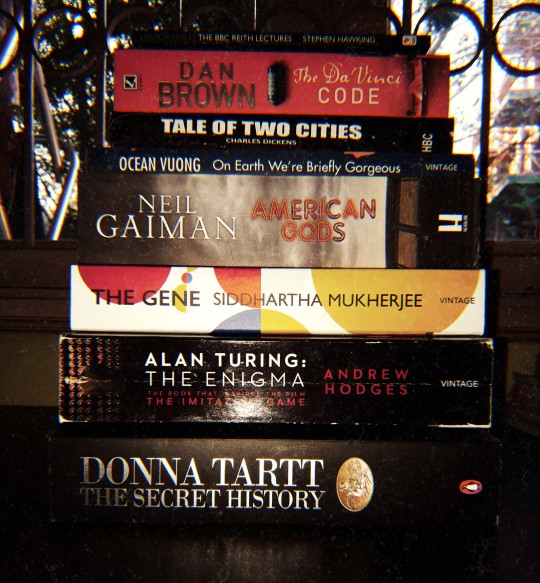
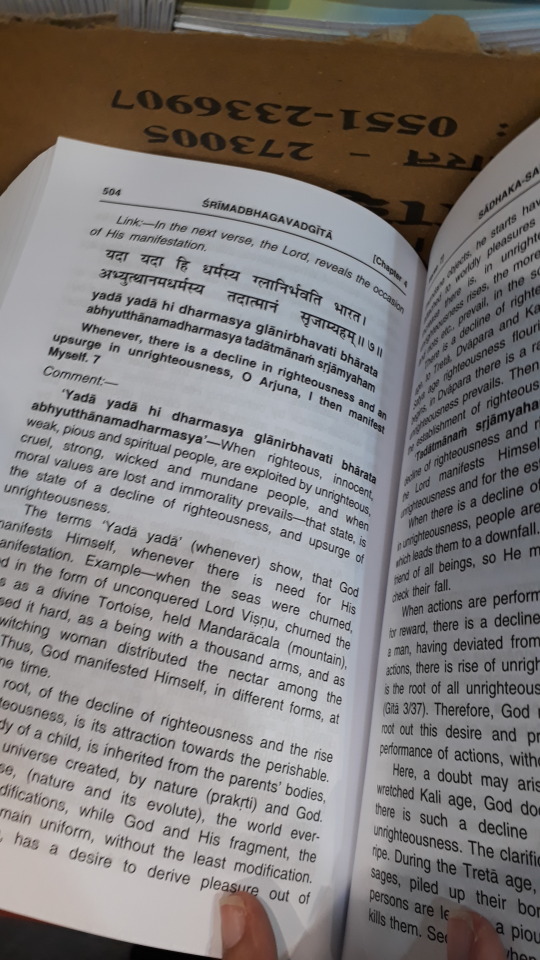
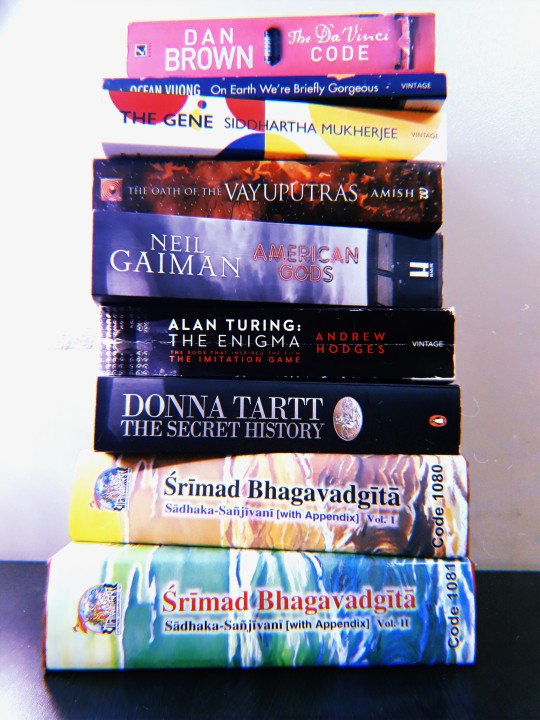

The Comforting Escape of Books: A Love Letter to Reading
Books are more than just ink on paper. They're portals to new worlds, windows into different lives, and a comforting escape from reality. In a world that can often feel chaotic and overwhelming, books offer solace, comfort, and a much-needed respite.
As someone who's always had a love for books, I can attest to the power of reading. It doesn't matter if you're into sci-fi, romance, or mystery novels, there's a book out there for everyone. And the beauty of it is that you can get lost in a story and forget about your worries for a little while.
It's no wonder that books are some of the most searched items on the internet. From the latest bestsellers to timeless classics, people are always looking for their next great read. And with the rise of e-books and audiobooks, reading has become more accessible than ever before.
So if you're feeling stressed, overwhelmed, or just need a break from reality, I highly recommend picking up a book. Whether it's a physical book or a digital one, the power of reading can transport you to new worlds, introduce you to new characters, and give you the much-needed escape you crave.
In short, books are magic. They have the power to heal, inspire, and transform us. So let's keep reading and exploring the limitless worlds that await us in the pages of our favorite books.
#world book fair#pragati maidan#the secret history#donna tartt#bhagavadgītā#bhagavadgita#alan turing#neil gaiman#american gods#amish tripathi#siddhartha mukherjee#ocean vuong#on earth we're briefly gorgeous#dan brown#the da vinci code#tale of two cities#charles dickens#stephen hawking#black holes#book fair#g20 2023#bookstore#book reccs#book nerd#books and reading#book community#book addict#book aesthetic#booklr#book list
13 notes
·
View notes
Text
"... that the opposite of love is not hate. Hate is just love gone bad. The actual opposite of love is apathy.
When you don’t care a damn as to what happens to the other person." -Amish
#quotes#literary quotes#literature#books#books and literature#indian lineup#amish tripathi#shiva trilogy#bookworm#book quotes#books and libraries#fyppage#trending#love#like4follow
28 notes
·
View notes
Text
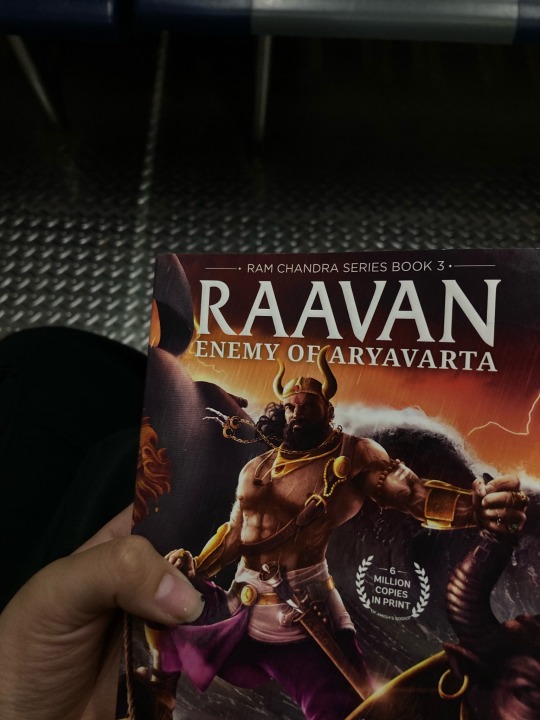

raavan was a fucking delight and now im so excited for lanka ;-;
#books#aesthetic#academia#reading#dark academia#study space#study aesthetic#dark academia aesthetic#bookblr#current reads#bookworm#book review#booklr#book recommendations#books and reading#book blog#studyblr#dark aesthetic#amish tripathi#war of lanka#raavan#Spotify
4 notes
·
View notes
Text
If you spend enough time with something you start liking it , even sadness.
— Amish Tripathi // Raavan
#life#quotes#love#people#quote#daily life#book quotes#life quotes#truth#amish tripathi#indian books#sadness#I don like sadness
2 notes
·
View notes
Text
BOOK REVIEW -
Hi! As I mentioned I read Immortals of Meluha and I wanted to discuss some thoughts. I don't know if I should recommend this book to you. If you want to read this book you have to keep in mind that it is completely fictional and linked to Hindu Gods. Also, not a lot of people have loved this book. No offence. I did enjoy reading this book and I will mention the reasons. Before even starting the book I had completely made myself clear that not everything is true. And as I started reading there were some interesting conversations related to different aspects of life. So if you want to actually enjoy reading this book you have to read it as a COMPLETELY FICTIONAL STORY cause this is not the original story of Lord Shiva. I have read a lot of mixed reviews for this book and I wanted to make it clear that not everyone can like the book. So read it on your own risk.
Concluding all I would like to say is read this book with these thoughts in mind - (1) completely fictional (2) have mentions of Hindu Gods and Rulers (3) has some interesting theories of looking at life (4) this is not the true story of Lord Shiva
If you have other expectations regarding this book then its okay. I just wanted to share my opinion regarding the book. Please don't come at me!
#book blog#book review#shiva trilogy#amish tripathi#the immortals of meluha#no spoilers#genuine#books#books and reading#critics#review
4 notes
·
View notes
Text
Im reading War of Lanka and there is a dialogue between Mareech and Indrajit
Mareech patted Indrajit's shoulder and walked beside his grand nephew. "You are young. And young people like to be heroes. It takes wisdom to do adulting.
Indrajeet raised his eyebrows "Are you learning our words grand-uncle"
And this is so fucking funny for some reason.
14 notes
·
View notes
Text
Watch "RETURN TO AMISH S7 EP1 - Arriving in Florida !!!" on YouTube
youtube
#reality tv#reality show#amish fiction#breaking amish#amish tripathi#amishgo#return to amish#reality tv show#reality stars#reality tv news#tvandfilm#tlcedit#youtuber#youtube recommendations#youtube channel#youtube shares#youtube#youtube video#youtube creator#youtube captions#youtube comments#youtube content#content creator#creator speaks
4 notes
·
View notes
Text
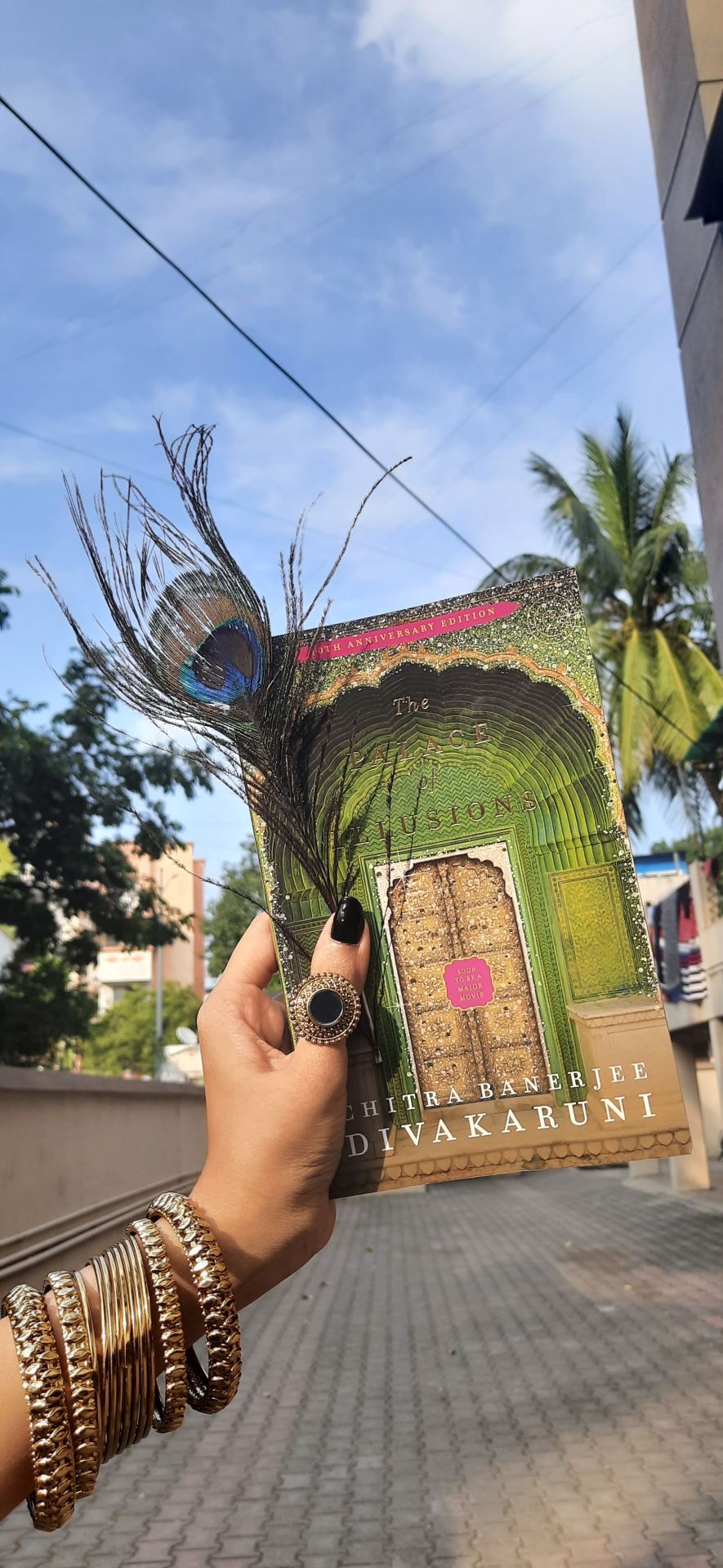
True friendship happens to be like that of Krishna and Draupadi.
Selfless and Pure!🌼
#books and reading#chitra banerjee divakaruni#hindu mythology#india#amish tripathi#reading#photography#krishna#book blogs
12 notes
·
View notes
Text

#books#quotes#words#english literature#literature#dark academia#dark acadamia aesthetic#amish tripathi#shiva trilogy#secret of the nagas#indian women#indian dark academia#indian mythology#indian aesthetic#india writers
5 notes
·
View notes
Text
"The most powerful force in a woman's life is the need to be appreciated, loved and cherished for what she is."
- Amish Tripathi || The Immortals of Meluha ||
24 notes
·
View notes